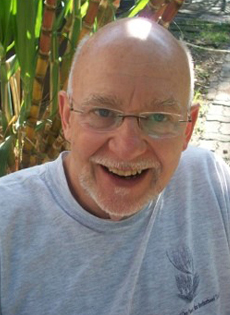
The Shack
Monday, March 8, 2010
*Brother Richard DeMaria
In a report about the religion program at Belen Jesuit Prep, Father Willie García-Tuñón explained that he was ambivalent about assigning the novel, “The Shack”, to students. Although he found it to be essentially orthodox in its theology, he found that it has an anti-institutional bias, which feeds the anti-Church stance of so many young people. I read the book recently and agree with him that this is a serious weakness of the book, but over-all I consider the book a helpful resource to evangelize.
The story is one of finding faith: Mack, the protagonist of the novel, who is suffering depression following the kidnapping/murder of his daughter, accepts an invitation to return to the scene of the crime, where he meets God, the Triune God. The persons of the Trinity appear to him in three very different manifestations. In the course of his two days with them, Mack’s outlook on life is transformed and he is freed from his depression.
Among the topics that are explored during Mack’s two-day visit are:
- The invitation to humans to participate in the life of the Trinity through relationships
- Freedom and evil: God’s purpose will “win out” despite the setbacks caused by human sin
- Christianity is not primarily a morality but a relationship with Jesus.
Every effort to translate doctrine into fictional characters will inevitably fall into heretical distortion of the doctrine. Nonetheless, author William P. Young appears to have made every effort to be faithful to orthodox Christian theology. For example, in his portrayal of the Trinity and the Incarnation, the interplay between the persons of the Trinity and their desire to incorporate humans into this loving embrace seem to me to be not only faithful to the Creed but effective in transmitting these key doctrines.
Let me cite one interchange: a conversation in which God assures Mack that His purposes will overcome the effects of evil:
“’Mackenzie’ (God) answered tenderly… ‘there are millions of reasons to allow pain and hurt and suffering rather than to eradicate them. But human choices are also not stronger than my purposes, and I will use every choice you make for the ultimate good and the most loving outcome.’”
Pope Benedict has said: “Being Christian is not the result of an ethical choice or a lofty idea, but of an encounter with an event, a person, which gives life a new horizon and a decisive direction.”
I think that the book will prove a valuable aid to anyone who hungers for a relationship with Jesus and the Trinity and will whet the appetite of many to seek an encounter with the sacred.
Let me return to the book’s anti-institutional stance: in the story, Jesus speaks of the Church as his bride but criticizes the human effort to institutionalize religion, especially the efforts of establishing Christian churches. This anti-institutional stance is a familiar theme in the history of Christianity. Periodically, there arise new Christian movements, which claim to be “non-denominational” and thus free of the distortions which accompany institutional religion. While many Christian groups have claimed to be non-institutional, history teaches us that it is only a matter of time before they morph into an institution. Eventually some members accuse other members of being heretical in their teaching and the non-denominational community splits into two.
Ironically, some aspects of institution are already forming around “The Shack”, only years after its publication. A group of followers have formed “The Missy Project”, a campaign to spread attention to this book.
No one can deny the problems that often accompany the institutionalization of religion. The negative aspects of institutionalization of religion are very real and very serious.
As I understand it, the Roman Catholic Church’s canon law usually comes down on the side of the individual and protects the individuals against the power of bureaucracy. In my experience working for the Church of Miami, I have found that the leaders in the archdiocese have taken to heart the warnings of Jesus about avoiding the leaven of the Pharisees and strive to be pastoral in their approach.
Brother Richard DeMaria, CFC
Executive Director, Ministry of Christian Formation

